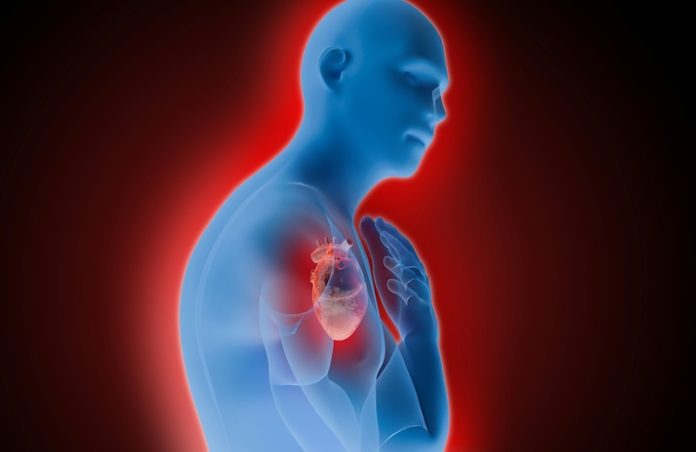
Congestive heart failure (CHF) is a common yet serious condition affecting millions around the world. It develops when the heart can no longer pump blood effectively, often due to health issues such as coronary artery disease, high blood pressure, or diabetes.
This inability to pump efficiently leads to a buildup of fluid in the lungs and other parts of the body, hence the term “congestive.”
Understanding and recognizing the symptoms of CHF is critical for early intervention, which can greatly improve the quality of life and outcomes for those affected. One of the earliest signs of CHF is shortness of breath or dyspnea.
This can happen during physical activities, while at rest, or even when lying flat. In severe cases, it might disrupt sleep, necessitating the use of extra pillows to breathe more comfortably due to fluid accumulation in the lungs.
Persistent coughing or wheezing is another common symptom. The cough may worsen when lying down and can produce mucus that is white or pinkish, indicating the presence of fluid in the lungs.
Additionally, swelling or edema in the feet, ankles, legs, or abdomen is a visible sign of CHF. This occurs because the weakened heart cannot effectively pump blood, causing fluid to pool in these areas, often worsening throughout the day and improving after resting at night.
Those with CHF frequently experience severe fatigue. This tiredness stems from the organs receiving insufficient oxygen-rich blood, which affects their ability to function and perform daily activities.
Other symptoms include a reduced appetite or nausea due to decreased blood flow to the digestive system, which can impact digestion and make one feel unusually full or sick to the stomach.
Cognitive issues such as impaired thinking or confusion can also occur, particularly in older adults, as the brain receives less blood. An increased heart rate might be noticeable, with the heart beating faster to compensate for its diminished capacity to pump blood.
Furthermore, sudden weight gain from fluid retention can be a critical indicator of CHF, signaling that fluids are accumulating in the body rather than being efficiently circulated and expelled.
Early recognition of these symptoms and prompt medical consultation can lead to effective management strategies and improved health outcomes. Treatment for CHF typically involves lifestyle modifications like dietary changes, increased physical activity, and smoking cessation.
Medications are also used to decrease the heart’s workload and prevent fluid buildup. In some cases, surgery or the implantation of devices may be necessary to enhance heart function.
Ongoing research into CHF aims to better understand the disease mechanisms and develop new treatments.
Advances in medical technology, such as sophisticated heart pumps and innovative medications, continue to provide hope, extending and enhancing the lives of those living with CHF.
Despite the challenges it presents, managing CHF effectively is possible. With the right care and adjustments to lifestyle, many individuals with CHF lead fulfilling lives.
Being vigilant about symptoms and maintaining close communication with healthcare providers are essential for managing the condition effectively.
Regular monitoring and treatment adjustments can help manage symptoms and slow the disease’s progression, ultimately ensuring a better quality of life for those impacted.
If you care about heart failure, please read studies about diabetes drug that could revolutionize heart failure treatment, and this drug can be a low-cost heart failure treatment
For more information about heart health, please see recent studies that exercise in middle age reversed worrisome heart failure, and results showing this drug combo can cut risk of stroke and heart attack by half.
Copyright © 2024 Knowridge Science Report. All rights reserved.



